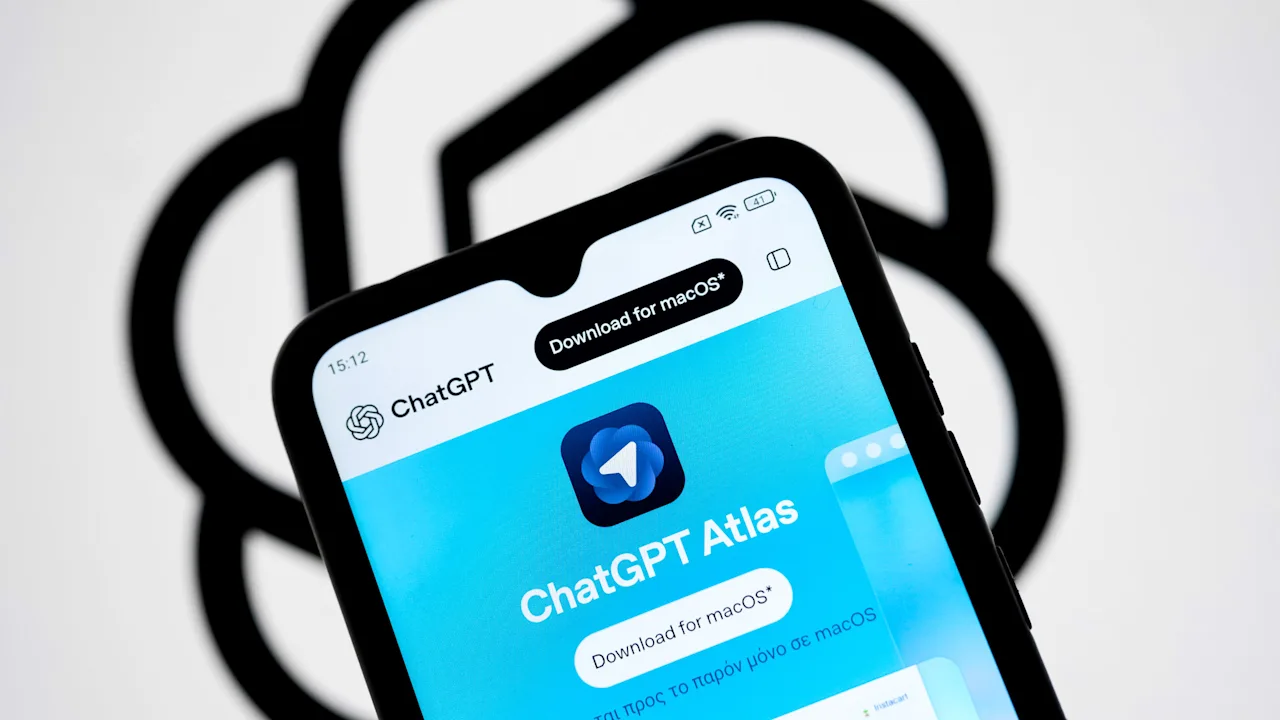
Not content with peppering chatgpt with hundreds of millions of users every day with inquiries and conversations, Openai wants to add more of itself to our digital lives. This week, the company released an AI-laden Web browser that it hopes will defy enforcement and gain adoption at scale.
Atlas is one of a raft of AI-powered browsers that have hit the market in recent months. There is confusion, an AI response engine, comet. Opera, Mozilla Firefox, Google Chrome and Microsoft Edge have delighted Neon with their own AI functions.
OpenAi has a much better chance than Google Chrome, which is used by about 70 percent of all web users, according to StatCounter. But it’s still hard to see how Atlas eats into Chrome’s advantage. “It’s hard to get people to switch browsers,” says Johnny Ryan, a senior fellow at the Open Markets Institute, which studies how users choose different digital services.
Of course, Openai has good reason to feel confident. ChatGept became a success within weeks thanks to its novel interactivity. Openai followed earlier this year with the controversial Sora 2 video generator, which gained one million users in five days. However For the average person, web browsers are less sexy.
If you’re not extremely technical, the reality is that a web browser is a utilitarian piece of web browser designed to get you from point A to point B: from one website to another. This is how most people are happy with how it works without destroying your device in the process.
Statcounter’s 15-year history with 15 years of registration in the web browser market, two browsers have dominated the market. By 2012, this browser, internet explorer, as it was around millennials, had a market share of between 80 and 95 percent. But as competitors began to offer better features and higher quality of service, Internet Explorer’s global dominance began to fade.
Demand for Internet Explorer in Europe began with an agreement in 2009 with the European Commission that required Microsoft to provide a “browser choice” screen to indicate that there were alternatives to Internet Explorer. The company immediately, in 2011 and 2012, when they started to do this, was provided by Google Chrome.
When it comes to the choice of browser, for moral reasons, for moral reasons, for example, users of DuckDuckgo, or because of what the opposition sees, because they make a personal choice for a different browser, often prefer DuckDuckgo’s browser.
“The Internet browser market consists of three major browsers that ship as standard on their respective operating systems. There is also a bright market of people looking for a different and better web experience,” said Jan Standal, vice president of Opera.
But, barring inducing performance issues, most people stick with whatever they give.
15 to 20 years ago, I personally tossed around different browsers because they offered revolutionary tools like tabbed browsing, better multimedia support, or how they worked with extensions. But today’s crop of browsers is overcrowded: even Open AI integration is common in many browsers, which has put it at the core of marketing for Atlas.
If a web browser works well enough, people tend to stick with it. It has been true for decades. Internet Explorer was the market leader until the early 2010s, as it was the default browser for the Windows operating system, an instant sign to buy alternatives.
Ryan points out that Atlas has something going for it, going for something to boost chrome. Many users complain about the CPU builder draw on processing power and the way their icons can quickly use up a device’s memory. “As the chrome deteriorated, the incentive increased,” Ryan said.
However, with general concerns surrounding AI’s impact on the environment, users may think twice about allowing so many browsers to adopt AI. “As concerns about EU data centers, darkness and water shortages increase, will this really browser people choose to move?” he asks.
